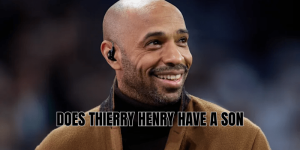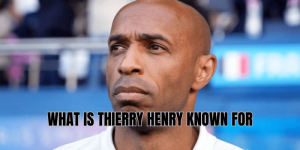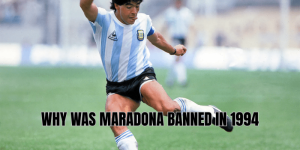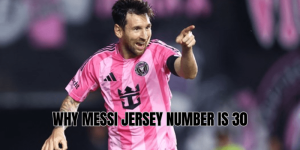IShowSpeed (Darren Watkins Jr.) has become a fixture in football-culture discourse. Among the many debates swirling around him, one question resurfaces repeatedly: why does IShowSpeed hate Messi? On social media, fan pages, and YouTube videos, that phrase ranks high. Today, TigerKick takes you inside the drama, teasing apart fact, interpretation, and performative flair.
Let’s clarify: there is no recorded personal feud, no statement, TigerKick navigates the layers: fandom, conflict, public perception, social media dynamics — and how all of that turns into what people call “hate.”
The Foundation: Who Is IShowSpeed And What’s His Football Identity?
Before diving into his relationship with Messi, we need to understand Speed’s worldview — particularly his football identity.
- Superfan of Cristiano Ronaldo: Throughout his streams, Speed has consistently made it clear he reveres Ronaldo. He tattoos Ronaldo’s image, quotes his slogans, and often frames debates around “Ronaldo vs. Messi.”
- Content built on provocation: His style revolves around high energy, extremes, and discord. By mocking or trolling big names, he draws attention, generates comments, and keeps viewers hooked.
- Personal interactions and snubs: Speed claims Messi blocked him on Instagram when he tried following or messaging him. That perceived rejection can stoke resentment.
- Historic “fuck Messi” chants and on-stage taunts: In live events, Speed has publicly yelled anti-Messi chants, which reinforce the perception of antagonism. aww.com])
So, even before specific triggers, Speed is structurally wired to treat the Messi side of the rivalry as part of his entertainment palette.
Key Incidents That Fanned The Flames

While much of the “hate” is symbolic or performative, several real moments have fueled the narrative.
Messi Ignoring Speed At Club World Cup
In 2025, a viral clip showed Messi walking past Speed, seemingly ignoring his attempts to wave or acknowledge him. The internet lit up instantly. Some interpreted the moment as Messi snubbing him; others saw it as typical sports decorum. anaweb.com])
Speed later became emotional about feeling betrayed by the lack of recognition.
Blocking On Social Media
Speed has claimed Messi blocked his Instagram follow attempts.
Public Mocking And Dismissal
Speed doesn’t shy from calling Messi “trash” or “bad” during streams and public content bits. Sometimes it’s satire, sometimes pure trolling — but it strengthens the idea that there’s active dislike.
He has also refused to watch Messi highlight reels when guests trick him into it, reacting with outrage and theatrical disdain.com])
Why The “Hate” Label Persists — It’s More Than Just Rivalry
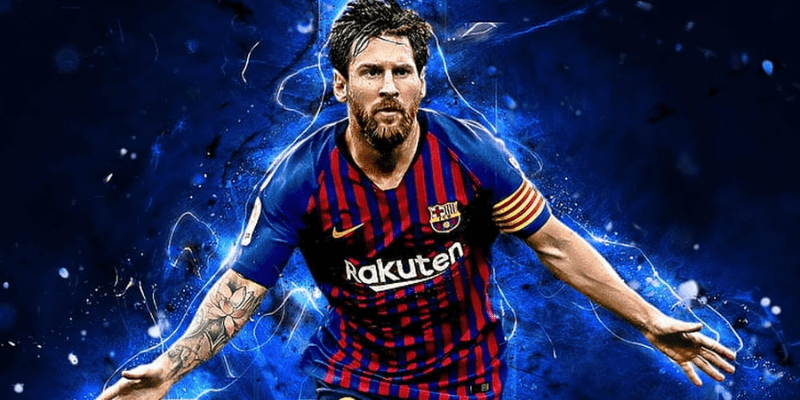
Several dee.
1. Rivalry as Identity
To Speed, supporting Ronaldo isn’t just fandom — it’s identity. In that context, every defense of Messi or praise of him feels like a personal attack. Dismissing Messi is defending “his side.” The more extreme the anti-Messi language, the more solid his loyalty appears.
2. Emotional investment and rejection
When Messi ignores or blocks Speed, it strikes as a personal betrayal to Speed’s fans. That rejection becomes a grievance that’s reactivated in every new interaction. The “hate” feels emotionally justified.
3. Content economics
Polarization drives engagement. The more extreme the viewpoint, the more clicks, comments, and “dr” it invites. By presenting himself as a fierce opponent of Messi, Speed ensures that Messi’s fanbase reacts — and that fuels visibility.
4. Media echo chamber
Fans and media clip Speed’s most roasted remarks and brand them as “hate.” Over time, those fragments coalesce into a narrative: “Speed hates Messi.” A few viral moments, once repeated, become perceived truth.
Where The Line Isn’t Crossed — What It Isn’t
While the “hate” narrative is loud, it’s not rooted in certain categories of conflict. Understanding what’s missing helps clarify what the dynamic is really about.
- No known personal beef — There’s no credible evidence of a face-to-face confrontation or private vendetta between Messi and Speed.
- No credible statements from Messi — Messi has not publicly addressed Speed, direct insults, or responded emotionally.
- No real rivalry on the pitch — Speed is not a footballer; his conflict is symbolic or social, not competitive.
- Mostly performative insults — Many of the attacks are comedic or hyperbole rather than sustained, reasoned critique.
Thus, “hate” is a label pressed on a mixture of fandom, theatrical insults, and interpersonal slights — more performance than feud.
How Fans Interpret It — And What It Means

The phrase why does IShowSpeed hate Messi captures collective interest in this performative rivalry. But what do fans see behind the noise?
- Messi defenders see genuine hostility: To Messi’s supporters, the insults feel targeted and mean-spirited.
- Speed’s fans see fun and loyalty: They frame his commentary as part of supporting Ronaldo, not an existential commentary on Messi.
- Spectators see meme culture at work: Much of this is content theater — stunts to keep online conversation going.
In that sense, Speed is less a hater and more a provocateur — someone whose identity and content thrive in opposition.
Broader Context: Football, Fame, And Hyperfans
This confrontation is part of a broader trend.
- Modern superfandoms: Fans like Speed operate in a digital age where personal branding, celebrity encounters, and online comments can feel like real confrontation.
- The GOAT wars (Messi vs Ronaldo): For many, this rivalry is existential, extending beyond performance into identity. When someone picks a side, the backlash is inevitable.
- Micro-fame meets global icons: Speed is a creator, not an athlete. His clash with Messi is an image clash — a smaller, loud persona versus a global legend.
Thus, this clash is more cultural than confrontational — a reflection of how modern fandom works.
Final Thoughts
Why does IShowSpeed hate Messi? There’s no simple answer — but it’s not quite literal hate. It’s a complex mix of fandom loyalty, emotional grievance, performative extreme, and content strategy. Speed’s identity is wrapped in defending Ronaldo, so attacking Messi is part of his brand. A blocking on social media or a snub in person becomes fuel. His audience eats the drama, and the narrative reinforces itself TigerKick.
If you’re a fan or critic, digging dee


